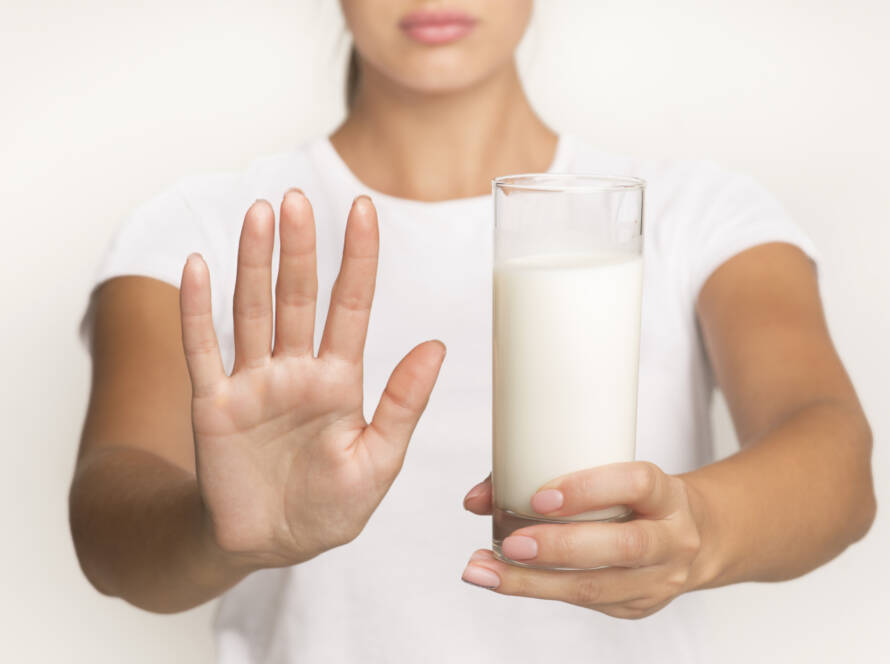There is a saying “ Great things come in small packages”.
Tiny but mighty seeds pack in a lot of punch, both in terms of flavor and nutrition. Small, crunchy seeds not only add texture to the food but have loads of health benefits besides reducing the risk of chronic diseases.
While exact nutrient composition may vary, edible seeds are a rich source of heart-healthy fats, fiber, plant proteins, essential vitamins and minerals, and other bioactive compounds having antioxidant and anti-inflammatory properties. Different seeds, benefit different health conditions. So let’s reap the reward by understanding the benefits and right usage of different seeds. Because of their high fat content, seeds should be eaten in moderation – about 2 tsp / day.
General Health benefits of seeds
- Boost immunity.
- Effective against high blood sugar & blood pressure.
- Promote heart health.
- Anti-inflammatory.
- Balance hormones.
- Good for skin & hair health.
- Slow ageing.
- Enhance memory.
- Good for vision.
- Prevent macular degeneration, migraine and insomnia.
Precautions while Consuming Seed /Mixture of Seeds
- While eating a mixture of two or more seeds one needs to consider their usage, health benefits and concerns.
- Nowadays, premix of seeds is available in the market.
- If the premix contains whole sunflower, pumpkin, flax and sesame seeds, the nutrients from whole flax seeds would not be digested & absorbed by the body.
- Try and buy individual seeds and consume them individually or as a mixture as per the usage, the health condition and physiological status.
Health Benefits and Usage of specific seeds
Chia seeds

- Rare quality of chia seed – rich in omega -3 fats with good ratio of omega-6 to omega-3 fatty acids, (0.3:0.35)
- A complete protein with all essential amino acids.
- It’s protein is easily digested, absorbed & transported to cells during rapid periods of growth. So beneficial for children & adolescents, pregnant and lactating women.
- Do not get rancid quickly & can be stored at room temp for 4-5 years in a cool, dry spot.
Health Benefits
- Controls diabetes, dyslipidemia and hypertension.
- Is anti-inflammatory, laxative and anti-depressant.
- Anti-ageing, analgesic, vision and immunity booster.
- Soaked seeds help in hydration, cooling & maintaining electrolyte balance.
Flax seeds
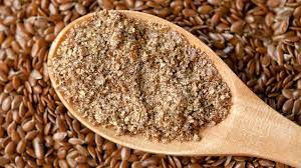
- Very good source of omega 3 fatty acids.
- When eaten whole, it passes through the intestinal tract undigested, so should be ground before use.
- Oxidation of omega-3 fatty acids during processing and storage results in reduced shelf life and limited health potential. So grind in small quantities in mortar and pestle to conserve omega 3 and keep in a plastic sealable bag in the freezer
Health Benefits
- Controls diabetes, dyslipidemia & hypertension.
- An anti-inflammatory and laxative.
- Reduces side effects of menopause and protects against breast, skin & colon cancer.
- Protects against endometrial cancer in post-menopausal women.
Pumpkin Seeds
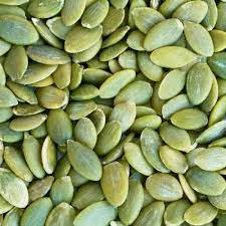
- Rich in protein, unsaturated fatty acids, Vit E, A, thiamine, niacin & phytoestrogen, zinc, phosphorus, manganese, potassium, magnesium, copper, iron & cobalt.
- High omega -6 fatty acids and very low omega -3 fatty acids.
- Can be stored at room temp. for 2-3 months & up to 1 year in fridge.
Health benefits
- Prevents anemia
- High magnesium –soothes blood vessels & lowers BP, promotes alkaline pH in bone & boosts bone mineral density.
- Anti-diabetic, anti-hypertensive, anti-ageing & anti-inflammatory.
- Anti-parasitic, relieves abdominal cramps & distension due to intestinal worms.
- Benign Prostate Hyperplasia.
- Prevents insomnia, reduces anxiety, acts as an anti-depressant and enhances mood.
- Reduces risk of bladder stone disease.
- Reduces post-menopausal symptoms.
- Reduces chance of colorectal, lung, breast &gastric cancer.
- Prevents hyperlipidemia & osteoporosis for post-menopausal women.
Sunflower Seeds
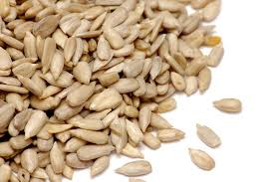
- Rich in protein, fiber , Vit B, Vit E, calcium, copper, iron, magnesium, manganese, selenium, phosphorous, potassium, sodium and zinc.
- Can be stored at room temp. for 2-3 months & up to 1 yr in fridge.
- Use raw or roasted seeds as snack or sprinkle over salads, cereals, soups, desserts, add to bread, cake, muffin, crackers & stir-fried vegetables.
Health benefits
- Prevents anemia & constipation
- Beneficial during pregnancy as rich in folic acid
- Boosts immunity & regulates cholesterol
- Is anti-diabetic, anti-hypertensive & anti-inflammatory
- Protects against bronchial asthma, muscle cramps and migraine
- Protects the skin against free radical damage
- Reduces stress, anxiety and depression and enhances memory
- Reduces the risk of prostate, colon and breast cancer
Watermelon Seeds

- Rich in protein, vitamins B & minerals like magnesium, potassium, phosphorous, sodium, iron, zinc, manganese and copper.
- Can be stored at room temp. for 2-3 months up to 1 year in fridge.
- Use raw or roasted seeds as snack or sprinkle over salads, cereals, soups & desserts.
Health benefits
- Lowers cholesterol, blood sugar & blood pressure
- Boosts immunity
- Slows down ageing
- Enhances memory
- Beneficial in pregnancy as rich in folic acid
- Improves elasticity of skin, reduce wrinkles, blemishes and age spots
- Promotes hair growth
- Enhances male fertility due to lycopene
Muskmelon Seeds
- Rich in protein, fiber, Vitamin A, B, C and E, minerals like magnesium and phosphorous.
- Can be stored at room temp. for 2-3 months & up to 1 year in fridge.
- Use raw or roasted seeds as snack or sprinkle over salads, cereals, soups & desserts
Health benefits
- Boosts immunity.
- Is anti-diabetic.
- Keeps blood cholesterol & blood pressure in check.
- Helps to deal with cold and viral infections and relief from congestion as it flushes out the excess phlegm from the body.
- Beneficial during pregnancy as rich in folic acid.
- Good deworming agent.
- Promotes healthy vision, reduces the risk of developing cataracts & prevents macular degeneration.
- Prevents migraines & insomnia.
Sesame Seeds
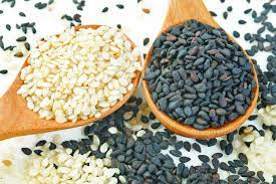
- Rich in protein, fiber, Vit E, calcium, potassium, phosphorus, magnesium, B complex vitamins.
- Is stable even after long exposure to air.
- May produce allergic reaction in some people.
- Can be stored at room temperature for 3 months and in fridge for 6 months.
- Use raw or roasted seeds on salads or stir-fry dishes, chikki, in tahini & hummus dip, baked goods.
Health benefits
- Regulates cholesterol and BP.
- Protects against damage caused by UV radiation.
- Promotes bone health and respiratory health.
- Beneficial during pregnancy as rich in folic acid.
- Prevents asthma, constipation and cancer.
- Promotes healthy skin.
- Relieves Premenstrual syndrome pain –topical application of oil in abdominal region
Sweet Basil / Sabja / Falooda Seeds
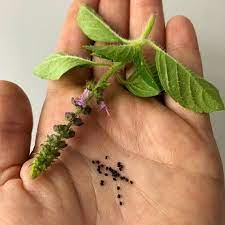
- Do not eat these seeds in raw form.
- Soak 2 tsp seeds in a cup of warm water & keep for 15 min to swell (so that they become soft and translucent) before using.
- Add soaked seeds in sherbet, lemonade, juice, milkshake, kulfi, ice-cream & custard.
Health Benefits
- Prevents anemia.
- Treats premature hair loss.
- Aids in regeneration of collagen in skin.
- Prevents chapped lips, sunburn & dry skin.
- Has cooling effect on the body.
- Promotes eye health.
- Prevents age related macular degeneration & cataract.
- Relieves cold, cough and respiratory disorders
- Improves bone health.
- Its fiber has prebiotic benefits and may nourish and increase good gut bacterial
Difference between Sweet Basil and Holy Basil
Holy Basil (Ocimum tenuiflorum) – Tulsi
- Grown in our homes.
- Role in Ayurvedic medicine
- Possible Benefits – reduces inflammation, diabetes, heart disease, stress, anxiety, cold, flu, fever, asthma – Holistic Wellness
- No harmful side effects
Sweet Basil (Ocimum basilicum)
- Leaves used in Thai cuisine, salads, pesto, pasta, pizza
- Seeds of this plant are basil / sabja seeds
Garden cress / Halim Seeds
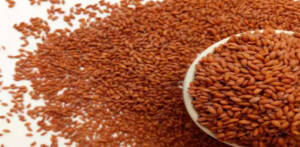
- Fat in these seeds has balanced amount of monounsaturated fatty acids (MUFA) 37.6 % and Polyunsaturated fatty acids (PUFA) 46.8 %.
- Use whole raw, roasted, soaked, sprouted or powdered seeds in salad, sandwich, drinks, milk, juice, soup etc.
Health Benefits
- Helps regulate menstrual cycle.
- Promotes milk production & secretion in nursing mothers.
- Treats diarrhea, dysentery.
- Prevents anemia.
- Treats premature hair loss.
- Aids in regeneration of collagen in skin.
- Prevents chapped lips, sunburn and dry skin.
- Promotes eye health.
- Relieves cold, cough and respiratory disorders.
Alfaalfa Sprouts
- Low in calorie, rich in Vit A, K, C, B-vitamins, phosphorus, zinc, iron and potassium.
- Refrigerate alfalfa sprouts in plastic bag for 2-3 days. Do not freeze.
- Use sprouts in salad, sandwich & soups.
Health benefits
- Prevents osteoporosis.
- Lowers cholesterol and blood sugar
- Combats dry and brittle hair, flaky scale and reverses hair loss.
Amaranth
- It is not an oilseed but an ancient grain rich in protein.
- It contains all amino acids — even lysine, which is often missing from cereal grains like wheat and rice.
- Amaranth is an excellent source of, fiber, iron, magnesium, phosphorus, manganese and a good source of calcium, zinc, copper, selenium, vitamin B6, folate and also antioxidants.
Health Benefits
- Promotes satiety.
- Prevents constipation.
- Reduces plasma cholesterol levels and inflammation in the body.
- Improves bone health.
- Beneficial for pregnant women as it is rich in folic acid.
- Improves anemia as it is rich in iron as well as protein.
- Being naturally gluten-free, it is a good option for people with celiac disease.
Usage
- It must be cooked before it is eaten.
- To cook amaranth, combine one cup of dried grain with 2 cups of liquid. Bring to a boil then simmer for 15 to 20 minutes to get 2.5 cups of cooked grain.
- It can even be popped like popcorn and added to breads, salads, soups and granola for its texture and crunchiness.
- Sprouted amaranth can be added to salad.
Apricot seed Kernel
- Similar in appearance to a small almond.
- Rich in protein, fiber & oil.
- No significant vitamins and minerals besides Vit E.
- Contains a chemical amygdalin which is a cyanogenic glycoside.
- Laetrile, also called B-17, is a partly synthetic form of amygdalin.
- Also present is another so-called vitamin, B-15, or calcium pangamate.
MYTH – Apricot kernels have anti-cancer effects
TRUTH – Amygdalin, is converted to cyanide after eating. Cyanide poisoning can cause nausea, fever, headaches, insomnia, thirst, lethargy, nervousness, joint and muscle aches and pains, and falling blood pressure. In extreme cases, it is fatal. The FDA considers vitamin B-15 “unsafe” for food and drug use.
Do not eat due to risk of cyanide poisoning
Additional Considerations while Using Specific Seeds
- To treat anemia one can have sweet basil, garden cress, pumpkin & sunflower seeds either individually or in combination but in case the person also has hypothyroid then garden cress seeds have to be avoided (as it prevents iodine absorption ) and the other 3 can be taken. Sweet basil seeds should preferably be taken during summer months as it has cooling effect.
- During pregnancy sesame, sunflower, musk melon & water melon seeds can be consumed as these are rich in folic acid. However sweet basil seeds, garden cress, flax seeds & alfalfa sprouts should be avoided as they may cause uterine contractions and may cause spontaneous abortion.
- During growing years, chia seeds may be given to children & adolescents as it is a complete protein, is rich in omega 3 fats and has a good omega 6: omega 3 ratio. In case the child has swallowing problems then dry chia seeds should be avoided and only soaked form should be given.
- In young girls with hypothyroid and hormonal problem, in order to regulate menstrual cycle flax seeds can be taken instead of garden cress seeds.
- Dual Effect – Flax seeds are beneficial for young girls / women to reduce estrogen levels in those who have hormonal imbalance with high estrogen levels Flax seeds are beneficial during menopause (- when estrogen levels go down) to reduce the symptoms associated with it.
- To prevent cataract & age-related macular degeneration, elderly should consume sweet basil & musk melon seeds. In case the person is on warfarin then sweet basil seeds should not be taken as presence of Vit K in seeds would make the medicine less effective.
- To promote bone health & prevent osteoporosis sweet basil, chia, flax, pumpkin & sesame seeds are good. Men diagnosed with prostate cancer should avoid chia and flax seeds.
- Amaranth seeds are beneficial while pumpkin seeds should be avoided for Herpes simplex virus infection which cause cold sores. Amaranth seeds are high in amino acid lysine which helps to block the activity of amino acid arginine, which the herpes simplex virus needs to multiply.
Tips for Storage
- Buy whole, raw seeds as they stay fresh the longest.
- When chopped, toasted or ground into flour, seeds release their oils which makes them go rancid more quickly.
- For immediate use store seeds in airtight container in a cool & dark place.
- Store the container in fridge or freezer to keep them fresh for much longer.



